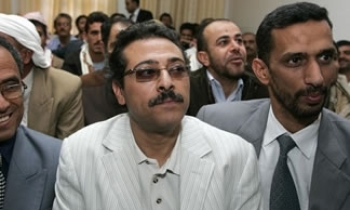Richard Stengel, a long-time writer and editor at Time magazine and the former head of its Web site, was named its managing editor yesterday, the 16th person to hold the job in the magazine's 83-year history.
Mr. Stengel, 51, will oversee the newsweekly, which has a circulation of four million, and its Web site, Time.com, which draws more than three million unique visitors a month, a number that has grown by more than 33 percent this year.
Mr. Stengel said yesterday that in some ways, the Internet poses the same kind of challenge to newsweeklies that the plethora of competing newspapers posed to Time when Henry Luce founded it in 1923.
"In a similar way, people were looking for one source to speak with authority and explain the world, and in many ways, that's still our mission," Mr. Stengel said. "We can be your guide through the forest of confusing information."
Melding the magazine with the Web, he said, "will be a big, big part of what I'm going to have to do."
Mr. Stengel succeeds Jim Kelly, 52, who is moving to a newly created position of managing editor of the entire magazine company, Time Inc.
Mr. Kelly and Mr. Stengel are longtime friends, having met in a writing class taught by John McPhee at Princeton in the mid-1970's. Mr. Stengel, who is president of the National Constitution Center in Philadelphia, is to move into Mr. Kelly's office on June 15.
The appointment ends two weeks of speculation over who would get one of the most prestigious jobs in publishing. Attention centered on several journalists outside the Time family, including Tina Brown, the former editor of Vanity Fair and The New Yorker, and Jacob Weisberg, the editor of Slate.
John Huey, Time Inc.'s editor in chief, had decided in November to move Mr. Kelly, who had served as editor of Time for more than five years, to a position in which he is to concentrate on standards and ethics at all Time Inc. publications.
Mr. Huey then spent the next several months talking to scores of journalists about what the magazine needed and later, about whether some of them were interested. Acting as his chief consultant in the search was Daniel Okrent, the former public editor of The New York Times and the former editor at large of Time Inc. and managing editor of Life magazine.
"This has been a long process and one that I obviously took very seriously," Mr. Huey said. "There's a great deal at stake. I had a lot of help from people who ended up not getting the job and I hope they don't feel exploited."
Among those he met with were Michael Kinsley, former editor of the editorial page of The Los Angeles Times and former editor of Slate, and the current editor of Slate, Mr. Weisberg.
He met with Mr. Stengel several times and had lengthy, Socratic discussions about the news and the magazine and finally decided that Mr. Stengel was "the one who brought everything to the table."
Mr. Huey said that despite reports that he was looking for someone who could expand the magazine's coverage of celebrities, "I never had any idea of blowing the thing up into something weird or strange."
Mr. Stengel, a Rhodes Scholar who grew up in New York, started with Time in 1981, becoming a senior writer and covering the 1988 and 1996 presidential campaigns. In 1999, he left the magazine to write speeches for Bill Bradley, a fellow Princeton graduate, in Mr. Bradley's failed bid for the Democratic nomination for president. He returned to Time to run Time.com and also served as nation editor and culture editor.
The author of several books, Mr. Stengel collaborated with Nelson Mandela on Mr. Mandela's autobiography, "Long Walk to Freedom," and helped produce a documentary, "Mandela," which was nominated for an Oscar in 1996.
Since 2004, Mr. Stengel has been the president and chief executive of the National Constitution Center, a nonprofit and nonpartisan museum and education center on Independence Mall in Philadelphia. The center teaches the importance of the Constitution and civic engagement.
Following Time tradition, his appointment was announced with some suspense. Three chairs were set up at the front of a room full of Time employees – one with Mr. Huey's name, one with Mr. Kelly's name and the third with a question mark.
Two other Time executives walked into the room but did not sit in the chair, adding to the drama. Then Mr. Huey and Mr. Kelly appeared, followed by Mr. Stengel.
"It's Rick Stengel!" someone in the room blurted out, leading to an outbreak of applause.
One Time staffer said the main reactions were shock and relief – shock because Mr. Stengel's name had not been mentioned prominently and he was not perceived as "an inside-the-organization power player," and relief because the new editor was familiar with the Time culture and the challenges it faces.
Mr. Huey said the applause was so vigorous that he decided not to deliver his prepared remarks. "I thought, Why mess this up?" he said. "I'll quit while I'm ahead."
Two Investigative Reporters Leave
Donald Barlett and James Steele, two investigative reporters who have chronicled the vicissitudes of the American economy for Time magazine since 1997, have lost their jobs in a budget squeeze.
The reporting duo, who together won two Pulitzer Prizes and two national magazine awards, were on the payroll of Time Inc. Their jobs were among about 650 that the company has eliminated in the last six months.
John Huey, editor in chief of Time Inc., said that as he cut corporate costs, he sought unsuccessfully to place the two men on the payroll of a company magazine.
"They're very good but very expensive, and I couldn't get anyone to take them on their budget," Mr. Huey said. "We'll miss their work."
Mr. Steele, 63, who began working with Mr. Barlett, 69, at The Philadelphia Inquirer in 1971, said: "We've had a great run at Time, but apparently the decision was made at the corporate level not to fund this kind of work."









